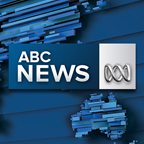
Updated
A United Nations official has blasted Australia for the "disturbing" number of Aboriginal children behind bars, saying the Federal Government needs to drive down Indigenous imprisonment rates.
Aboriginal and Torres Strait Islander young people are about 17 times more likely to be involved in the justice system than their peers.
UN Special Rapporteur Victoria Tauli-Corpuz spent the past fortnight investigating Indigenous disadvantage nationwide.
She said meeting dozens of young people inside Townsville's Cleveland Youth Detention Centre was "the most disturbing thing I saw".
"I'm quite shocked about the punitive measures being taken, which really lessen the chances of a good future for these children," Ms Tauli-Corpuz said after delivering her preliminary report.
"Many of the crimes they have committed are really petty crimes.
"Many of them have come from child protection systems, which means that the child protection systems are not working effectively.
"Those children don't deserve to be in detention centres; more resources should be provided for early intervention and prevention."
Despite making up just 3 per cent of the general population, about a quarter of Australia's prison population is Aboriginal or Torres Strait Islander.
Ms Tauli-Corpuz - an Indigenous Filipino person - also visited Perth's Bandyup Women's Prison and the Children's Koori Court in Melbourne.
She backed calls from dozens of groups for the Federal Government to establish a justice target aimed at driving down imprisonment rates.
"There should be a justice target that will look into the high levels of Indigenous people [in prison along with] the funds that are provided to be used for prevention, reintegration and diversion programs," she said.
Issues 'need to be addressed' before Australia joins Rights Council
Ms Tauli-Corpuz outlined problems with the Commonwealth's flagship funding program, the Indigenous Advancement Strategy.
She also voiced concerns about a lack of support for National Congress of Australia's First Peoples — a representative body — along with sluggish progress improving health, education and employment outcomes.
The Special Rapporteur said key issues "need to be addressed" before Australia joined the United Nations Human Rights Council.
The Government has been pushing to join for the 2018-20 term.
"For it to be able to be a member of the Human Rights Council, it really needs to address substantially the issues Indigenous peoples have been raising for many, many years now," she said.
Ms Tauli-Corpuz applauded moves by Victoria and South Australia to explore treaties with Aboriginal groups.
She urged the Commonwealth to follow suit, saying it was "one of the essential components" of reconciliation.
"Treaty is important because then that would elaborate further on the different aspects of the issues that they are facing, whether this is education, health, reparations for the injustices that have been happening to them."
Topics: aboriginal, indigenous-aboriginal-and-torres-strait-islander, community-and-society, indigenous-policy, government-and-politics, prisons-and-punishment, law-crime-and-justice, australia
First posted






 Add Category
Add Category
